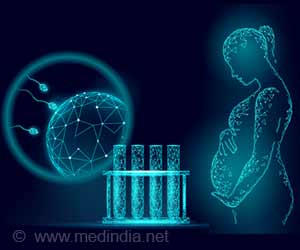Rising cases of undiagnosed immune deficiency in Indian children underscore urgent need for awareness and early diagnosis.

Update: Primary immunodeficiency disorders among north Indian children
Go to source). Dr. Gaurav Kharya, Director of the Department of Bone Marrow Transplant and Cellular Therapy at Indraprastha Apollo Hospital, New Delhi, highlighted the escalating prevalence of primary immunodeficiency disorders (PIDs) across India. PIDs, being potentially fatal genetic conditions, render children more vulnerable to infections, autoimmune diseases, and malignancies. Despite the absence of nationwide data on PIDs, statistical estimates suggest that over a million patients might be affected by these conditions in India.
TOP INSIGHT
Over 450 rare immune deficiency cases detected monthly, predicting a 300% increase by 2024. #PrimaryImmunodeficiency #HealthcareCrisis
Clinical Observations and Challenges
Dr. Sagar Bhattad, a Consultant in Paediatric Immunology & Rheumatology at Aster CMI Hospital, Bangalore, shared concerning observations from his practice. Over the past seven years, the hospital has identified more than 450 children with rare and complex immune deficiency diseases. The number of cases diagnosed monthly has risen significantly, from 1-2 cases a decade ago to 10-12 cases monthly presently. Moreover, statistical projections indicate a dramatic increase in diagnosed cases from less than 50 before 2004 to 2,500-3,000 cases by 2024.Doctors attribute the rise in undiagnosed PIDs to a lack of awareness and inadequate treatment facilities, particularly in rural areas. These genetic conditions are more prevalent in communities practicing consanguineous marriages. Limited diagnostic facilities and low awareness prevent many patients from accessing tertiary care centers where they could receive treatment for these disorders.
Urgent Need for Awareness and Early Diagnosis
Emphasizing the importance of early diagnosis, doctors stress the significance of recognizing signs and symptoms to facilitate timely intervention and better treatment outcomes. Genetic testing during pregnancy plays a crucial role in identifying potential problems and preventing their recurrence in future pregnancies.Bone marrow transplant (BMT) emerges as a potentially curative treatment for various types of primary immunodeficiencies. Dr. Sagar highlights the significance of early identification of these conditions to provide targeted treatment and avoid frequent infections and antibiotic overuse.
The doctor's advocate for increased availability and affordability of genetic testing to enable early diagnoses and improve treatment outcomes. By raising awareness and working collaboratively, healthcare professionals aim to ensure that no child misses out on a healthy life due to an undiagnosed immune deficiency.
- Update: Primary immunodeficiency disorders among north Indian children - (https://www.ijpo.co.in/html-article/15211)
Source-Medindia
 MEDINDIA
MEDINDIA




 Email
Email





